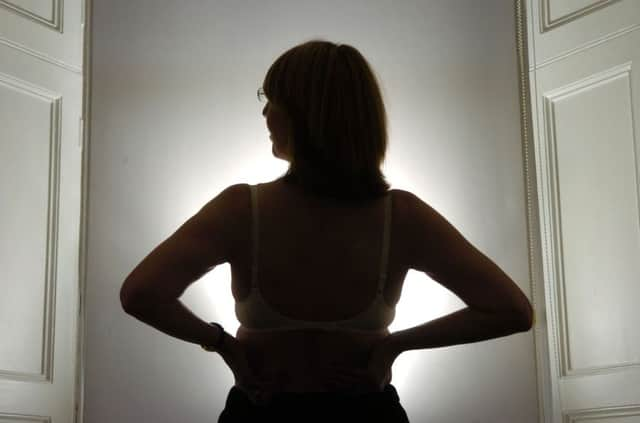Having a ‘bad back’ could be a matter of genetics


Most people in the UK will suffer from back pain at some time in their lives. In its long-lasting and serious forms, such when a disc has slipped (disc prolapse), it can significantly affect someone’s day-to-day life. So it is not very surprising that the courts often hear cases in which people who are suffering from a prolapsed disc try to show that it was caused by an event, such as a road traffic accident, or by long-term fatigue as part of their job.
However, some medical experts believe that the key factor is not trauma or cumulative fatigue but genetics. This is known as the “biological model”, as opposed to the “mechanical model”. In fact, Professor Robert Dickson, a consultant orthopaedic surgeon and renowned expert on the human spine, recently said that whoever conclusively identifies the precise physiological process involved in disc degeneration might win a Nobel Prize.
Advertisement
Hide AdAdvertisement
Hide AdProf Dickson was speaking in court, during the case of Martin Wilson v North Lanarkshire Council & Motherwell College. The defenders were represented by Andrew Constable of Simpson and Marwick.
The defenders had employed Mr Wilson as a music teacher, a job which involved lifting and moving musical instruments. Mr Wilson argued that this had caused repeated traumas to his spine, which had led to the onset of degenerative disc disease and prolapse of his intervertebral disc. As a result, Mr Wilson was enduring significant and ongoing disability, and had not been able to work since 1996.
His case was supported by orthopaedic, neurological, biomechanical and radiological experts. They said that scientific theory supported the “mechanical model”, and pointed to many peer-reviewed studies in which the spines of dead people were tested and had prolapsed under loading. The lead expert for Mr Wilson was clear that if the correct kind of mechanical loading was imposed, then discs would herniate, particularly if the load is sufficiently severe. This was the case whatever the person’s age, and whether or not the spine had already degenerated.
Most of the defenders’ experts were orthopaedic surgeons, although they also brought in Dr James Rankine, a consultant musculo-skeletal radiologist. The court said that it had found his views particularly helpful.
The defenders’ experts preferred the biological model. They believed that prolapse and herniation could not occur in a healthy disc with no prior degeneration, and that any degeneration was primarily caused by the person’s genetic inheritance. They agreed that environmental factors played a part but, importantly, they did not believe that trauma played any significant role.
To support their view, they relied on an important paper by epidemiologists Battie and Videman in 1995, which was the culmination of painstaking research into the spines of identical twins in Finland. More than 100 twins were studied using the best possible investigative technique: magnetic resonance imaging. The findings were startling. When one twin had a sedentary lifestyle and the other had experienced heavy loading and trauma of the spine, degeneration could be seen in the discs of both twins. This was powerful support for the contention that genetics plays a major part.
The court considered both sets of views and preferred the defenders’ experts. It said that their conclusions were more in keeping with clinical experience: adults without any history of loading or trauma can suffer severe degeneration in the spine. Children also occasionally suffer from severe spinal degeneration, even though they could not possibly have been subject to the kind of environmental influences relied upon by the pursuer’s experts. The court’s decision does not settle the question of the biological versus the mechanical model. But the judgment is a useful addition to the debate, and future cases will be affected by it.
• Andrew Constable is an accredited personal injury specialist, defence lawyer and partner in the litigation service area at Simpson & Marwick